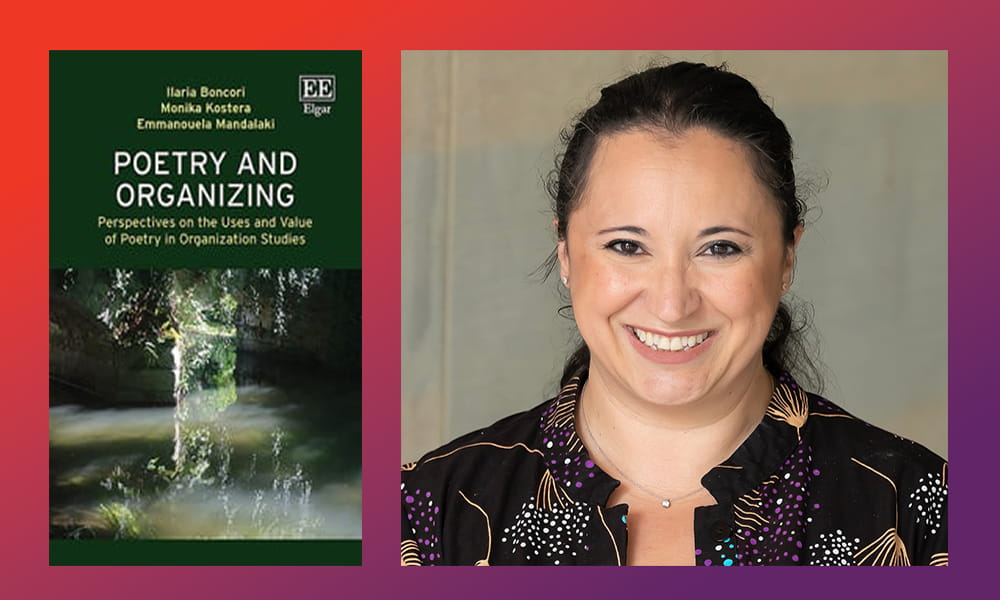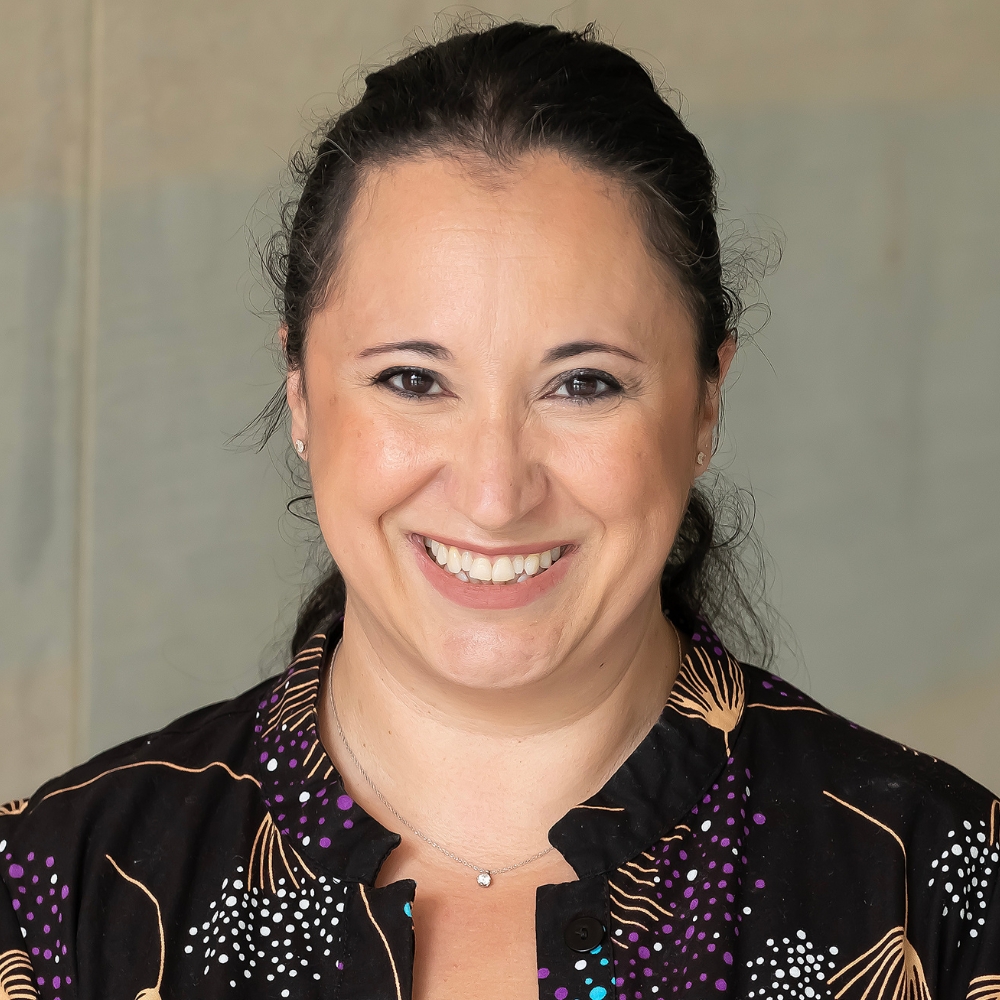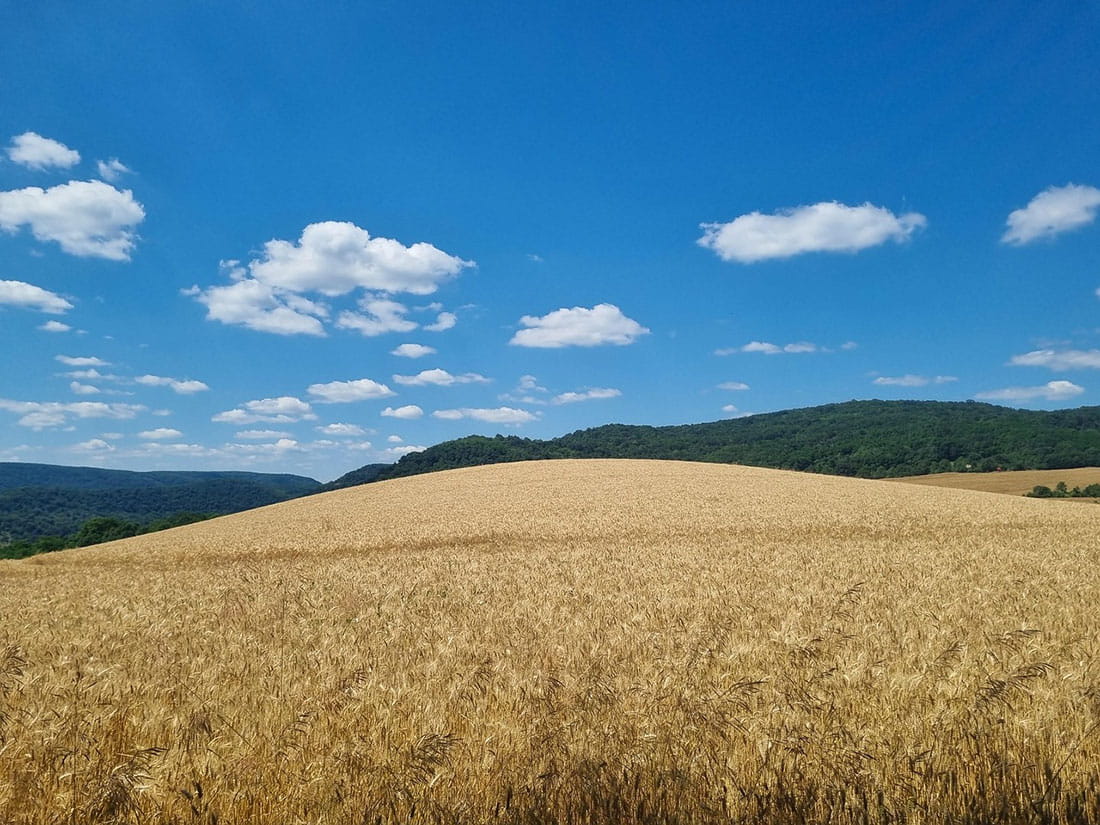Ilaria Boncori: Q&A on Open Access Publication

Professor Ilaria Boncori, Professor in Organization Behaviour and Human Resources Management in Essex Business School, Monika Kostera (University of Warsaw, Poland) and Emmanouela Mandalaki (NEOMA Business School, France) are co-authors of a new monograph, Poetry and Organizing: Perspectives on the Uses and Value of Poetry in Organization Studies, published in print and Open Access digital editions by Edward Elgar, with the support of the University’s Open Access Fund.
Poetry and Organizing: Perspectives on the Uses and Value of Poetry in Organization Studies is freely available to download now.
Here they introduce us to the themes of their book and the significance of publishing Open Access.

Congratulations! How does it feel to see your work in print and freely available online?
Ilaria: It’s great to see this book in print, and we are excited to have it available in Open Access so more people, and particularly students, will be able to access it for free.
Monika: It will also be a pleasure to share it via our research networks with academics of the global South as well as Eastern and Central Europe, who often do not have access to expensive publications via their libraries.
Emmanouela: It is great pleasure to see this book published and available online for everyone that can benefit from it, namely colleagues and students who can use this book to reframe the way they engage their research and writing.
What inspired this fascinating project and how did the three of you get together?
IB: Earlier on, I had had the opportunity to write a chapter on using poetry in management and organization studies with my friend and colleague Aanka Batta, and I thought it would be great to write more on this topic. Poetry is not something routinely used in academic work published my field, but I have always loved it. I knew that Monika and Emmanuela share my passion for poetry, so I got in touch with them with the idea of the book, and I was absolutely ecstatic when they both said yes.
MK: I have been writing about this topic since 1997, and I am also a published poet. It was a real pleasure to come together with Ilaria and Emmanouela around poetry and organizing and this book was a work of love for the three of us. Also, a tribute to our common mentor (for two of us in person and for one only through her writings) – Heather Höpfl, who is, alas, no longer with us, but who never ceases to be a glorious inspiration to all interested in poetics, organizing, and managing.
EM: Given my long-standing interest in poetry, which I have been increasingly integrating in my academic work these past years, I was delighted to receive Ilaria’s invitation to work together on this volume. Working with Ilaria and Monika and sharing perspectives, experiences and sensibilities on the use of poetry in organization studies has been a formative process that I am grateful for.
Poetry and organization studies initially sounds an unlikely match, but of course the best poetry is highly organized and follows strict internal rules. Is that the key link?
IB: Actually… no! Rather than imposing organization and structure onto poetry, we want to highlight the value and potential of the embodied, affective and unruly nature of poetry, together with its silences and vagueness, as ways to explore organisations and ways of organising that move away from straightjacketed, normalising and othering ways of understanding ‘business’.
MK: I agree with what Ilaria said! Also, as Heather used to say: poetics serves as a compass in the quest for an alternative to patriarchal, neoliberal management.
EM: My answer will also echo Ilaria and Monika’s here, where we explore poetry exactly for its potentials to shake the boundaries of canonical forms of writing and thinking and break new ground in relation to how research in organization studies can be written. We wish to invite the audience into an embodied reading experience, involving meaningful exchange and dialogue around the discussed processes and ideas.
Can you define the feminist approach that you explore?
IB: Our feminist approach is focussed on the flourishing of all, on the valuing of difference, on challenging the status quo and injustice, and on the rethinking of better alternatives and futures. To us a feminist approach also means rejecting marginalising notions of what counts as good research, who can write it and which voices can be included.
MK: Hear, hear. As well as Heather’s notion of the maternal organization, which is about belonging and breathing together – not performing and competing apart.
EM: Echoing what has already been said, here we engage with poetry as a feminist genre of writing that offers a language to speak of difference, otherness and the unequal distributions of privileges and vulnerabilities in the social world. It does so by recognizing the senses and affects involved in research.
What, in practice, do you hope readers will take from your work?
IB: We hope the readers will resonate with some of our poems and with an appreciation of the value and potential poetry has in inclusive approaches to organising.
MK: Exactly – Hartmut Rosa’s notion of the resonance is crucial for those who, like ourselves, believe in the power of regeneration of human societies, in order to avoid extinction, bring about peace and love for the ecosystem.
EM: We hope that readers will recognize the potential of poetry to express processes of organizing and organization in ways that normative forms of writing are not able to capture and involve themselves into a meaningful reading experience that awakes the senses. We hope that readers will attempt to explore the potentials of poetry to reframe their writing.
And you have all contributed your own original poems to the book too, is that right?
IB: Yes, the book includes more traditional narrative chapters as well as poetry – the second part of the book is dedicated to the poems we each wrote. We hope it will inspire others to do the same.
MK: Yes!
EM: Absolutely -- we have written these poems with love, care and attentiveness to the senses informing the experiences that they recount.
How did you find the Open Access publishing process? What advice would you give anyone considering the same route?
IB: The process at the University of Essex was very straightforward, and the Open Access team was super helpful. Our publisher, Edward Elgar, was also very welcoming of the idea of publishing in Open Access, so it was a very smooth endeavour.
MK: I am also very grateful for this amazing possibility!
EM: The process has been very smooth and useful. We are grateful for the opportunity to have our work shared Open Access with our audiences.
How do you plan to take advantage of Open Access to share and publicise the book?
IB: We will circulate the link, of course, through social media, conferences and talks; and a few colleagues have already asked to use the book in their teaching in other countries.
MK: Yes – as well as through networks connected to the journals where I serve as Editor-in-Chief and Associate Editor.
EM: Echoing the above-said, we also plan to share the book with PhD students, Post doc researchers, and colleagues at the universities where we work and through our various networks online and offline.
And before we go, I have to ask: your favourite poem, please?
IB: That’s a hard choice! I love Hikmet’s poems which are inspiring in their political activism but also in the portraying of personal experiences, like in ‘You’, although I am not able to read them in their original language.
MK: Extremely difficult question! My answer would differ from one season to another. Right now, I resonate particularly strongly with John Burnside and especially two of his collections: ‘All in one breath’, and his last one: ‘Ruin, blossom’. The sadness and the beauty together are a powerful presence.
EM: I find it very hard to answer this question too. Once of my favourite poems is the poem ‘The time will come’ (θά’ρθει καιρός, in the original) by Katerina Gwgou, a Greek artist who used her pen to problematize the political climate in Greece around the fall of dictatorship and the political instabilities that surrounded this period.
Poetry and Organizing: Perspectives on the Uses and Value of Poetry in Organization Studies can be downloaded free of charge now.
The Open Access Fund
The University’s dedicated fund remains in place to help Essex academics publish their research Open Access. If you want to know whether the fund can support your work please just ask us by completing one of our brief forms:





